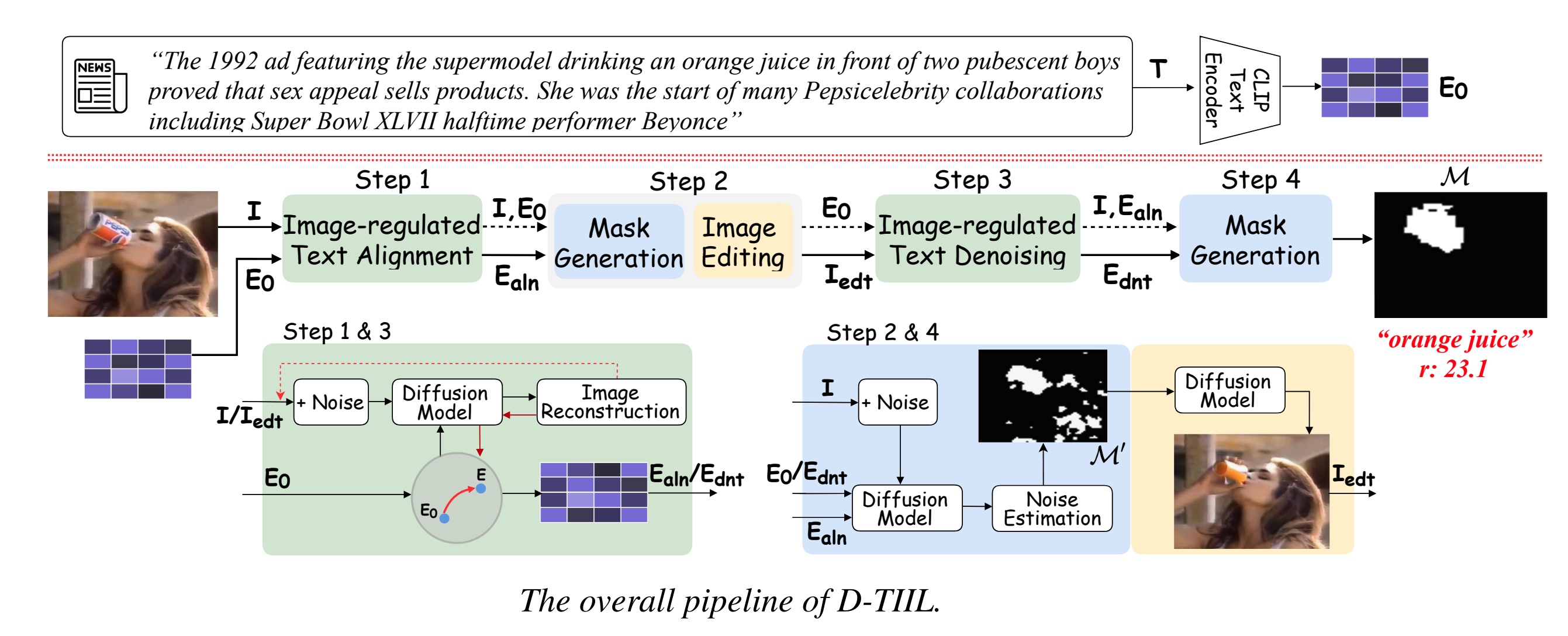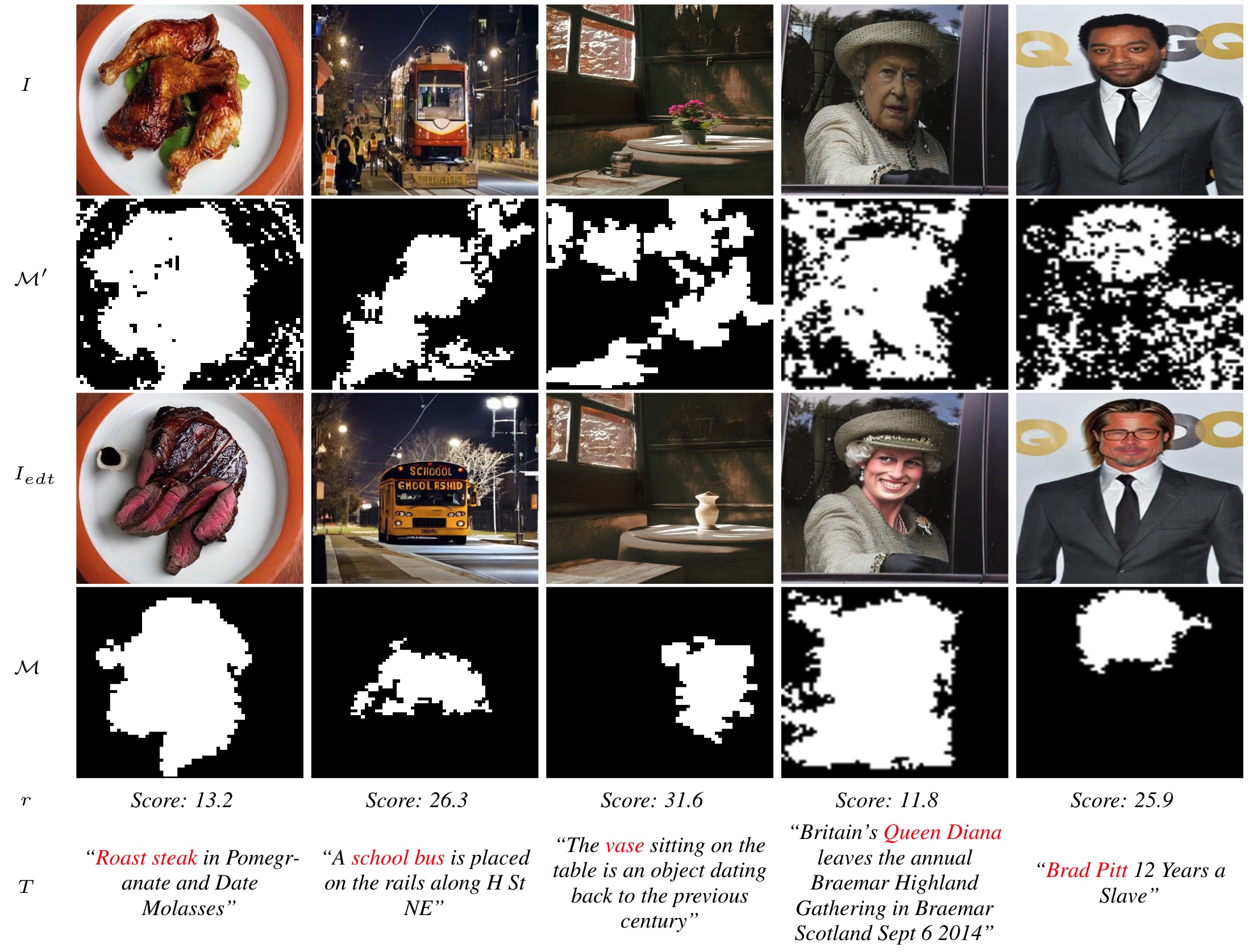In the battle against widespread online misinformation, a growing problem is
text-image inconsistency, where images are misleadingly paired with texts with
different intent or meaning. Existing classification-based methods for text-image
inconsistency can identify contextual inconsistencies but fail to provide explainable
justifications for their decisions that humans can understand. Although more nuanced, human evaluation is impractical at scale and susceptible to errors. To address
these limitations, this study introduces D-TIIL (Diffusion-based Text-Image Inconsistency Localization), which employs text-to-image diffusion models to localize
semantic inconsistencies in text and image pairs. These models, trained on largescale datasets act as “omniscient” agents that filter out irrelevant information and
incorporate background knowledge to identify inconsistencies. In addition, D-TIIL
uses text embeddings and modified image regions to visualize these inconsistencies. To evaluate D-TIIL’s efficacy, we introduce a new TIIL dataset containing
14K consistent and inconsistent text-image pairs. Unlike existing datasets, TIIL
enables assessment at the level of individual words and image regions and is carefully designed to represent various inconsistencies. D-TIIL offers a scalable and
evidence-based approach to identifying and localizing text-image inconsistency,
providing a robust framework for future research combating misinformation.

